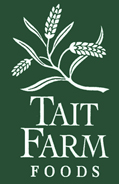-

Erin Donahue -

Christina Barkanic -

Brittany Trott -

Emily Wiley -

Jessica Reilley -

Chris Raines -

Will Nichols -

Emily Reddy -

Michele Marchetti -

Michele Frank -

James Gherardi -

Kit Henshaw -

Christina and Erin -

Kim Tait -

Erin McKinney -

Steve Spanelli -

Sam Komlenic -

Katherine Taylor Grofic -

James Eisenstein -

Jamie Oberdick -

Anna Lombardo -

LacCreta Holland -

Tony Ricci -

Local Food Journey -

Laura Young -

Kristin Camplese -

Harrison's Fresh + Local -

Danielle Matalonis -

Kristine A. -

Linda Weaver -

Naomi Elle Schwartz -

Dana Stuchul -

Cara McShane -

Brittany Smith -

Jessica Illuzzi - Frosty
-

Jessica Paholsky -

James Sechrengost -

Brad Yeckley -

Maya Althouse -

Jordan Reabold -

Kim Chase -

Maria Bryant - Alexandrea Scott
Why Eat Local?
Posted by Jamie Oberdick on 01/28, 2014 at 09:59 AM

This field is quiet now, but in several months will awaken and start producing local food. Photo by Jordan Reabold
Below is the first of many posts on Local Food Journey by our new intern, Penn State student Jordan Reabold. We’re excited to have Jordan aboard, and in the coming weeks she will be exploring the local food scene, including profiles on local food people, stories about various local food offerings in our area, and more.
One of the things I love most about State College, being that it reminds me of home, is the farmland. I’ve come to appreciate the cultivated fields where wooden barns nestle among the hills of Happy Valley, peacefully enveloping the bustle of the University. While the farms of State College certainly have aesthetic worth, they serve a more practical purpose as well—food, of course! And what better way to show your appreciation for these farmers than to choose local produce over large-scale food systems. In doing so, you support not only the farmers, but the local economy as a whole, and yourself.
If you’ve never heard the term, “locavore,†it refers to those who primarily prefer locally grown food. If you don’t classify yourself as a locavore of State College, you should reconsider changing your ways. Jim Wright, a staff writer for a New Jersey newspaper called The Record, gives good reason to eat local. He claims, “Buying locally produced food supports area farmers, keeping them in business so their farms don’t become the next housing development.â€
I can’t imagine State College without farmland, but the only way to ensure that these farms can remain is to simply buy what they make. In supporting local farms, you are also stimulating the economy in general. Robert Junk, the local economy manager for an economic development council called Fay-Penn, recently encouraged every citizen of Fayette County, Pennsylvania to spend $20 per month to buy products at a local business. This, he presumes, “will generate at least three times the economic benefit of a dollar spent in a non-local establishment.â€
Clearly, the ripple effect goes a long way, and all you have to do is attend a farmer’s market! Whether you were born and raised in State College or you are new in town, your effect on the economy is equally significant. A friend of mine, a Buffalo native who moved to State College in the fall, has taken advantage of locally grown produce since arriving. “In the fall I went to the farmers market every week,†she said.
Not to mention, she makes it a point to frequent restaurants that use local ingredients. “It’s fresh and you can taste that. Also, it stimulates the local economy. The labor our local farmers perform is invaluable to our health,†she said.

Centre County farmland is more than just beautiful, it’s part of our local culture. Photo by Jordan Reabold
Just as farmers take advantage of the resources we have here in Central Pennsylvania, we should take advantage of the farmers themselves. For all the hard work they put in to grow and raise fresh food, we owe it to them.
The more often you choose local foods, the sooner you’ll find that your dollar has made a significant contribution. According to Michael Jordan, executive director of Fay-Penn, there are currently 63,000 farms in Pennsylvania, and all have collectively supplied $67 billion to the state’s economy. Sounds fantastic! However, according to the Strolling of the Heifers Locavore Index, Pennsylvania ranked 32nd of all fifty states based on community-supported agriculture and consumers’ interests in local foods. Being that Pennsylvania’s top industry is agriculture, according to George Greig, the state Secretary of Agriculture, it seems as though there is potential to increase the contributions of local farms to the state’s economy. All we need is some encouragement and valuable information regarding the benefits of local farms.
Of course, there are countless other benefits to buying locally grown food. Mark Balkwill, president of Essex County Federation of Agriculture, points out, “When you buy your food, you can approach the person who grew that and ask, ‘What did you use?’ When you go to a big retailer…you can’t do that.â€
So why not take advantage? Attend a local farmer’s market and simply approach the people who are supplying the food. Ask questions, make conversation, and chances are you’ll be back next week.
Local food implies freshness, which pertains to your health and the environment as well. Chris Freytag, a writer for Prevention, supports locavorism and recently outlined how it’s better for you. “Cutting down the time between the harvest and consumption means more nutrients are preserved.†He continues, “a majority of the produce in a supermarket was picked almost a week before it hits the shelves and probably traveled many, many miles before being sold.â€
Think about all the resources used to package and ship food across the country, increasing energy consumption and prices, while decreasing nutritional value. Taking your grocery list to the farmer’s market, as opposed to the nearest chain grocery store, puts your money in the hands of friends and neighbors nearby.
I find that all incentives to buy local food exist within the words of Michael Pollan, author of The Omnivore’s Dilemma. He asks, “How did we ever get to a point where we need investigative journalists to tell us where our food comes from and nutritionists to determine the dinner menu?â€
As intriguing and powerful as his question is, it is an obvious question at that. Choosing locally grown foods is smart because it tastes good, it’s affordable, it’s beneficial to all involved, and most of all, it’s honest. You know who’s growing it, where they’re growing it, and how they’re growing it. Basically, it’s all on the table for you.
![]() Author: Jamie Oberdick
Author: Jamie Oberdick
Bio: Editor, Local Food Journey | Passionate about supporting local food in Central PA
- Our Local Food Journey comes to an end
- Winter isn’t a quiet time at the farm
- Get the taste of garden season right now by growing herbs indoors
- All you need to know about PASA’s Farming for the Future conference









NO COMMENTS